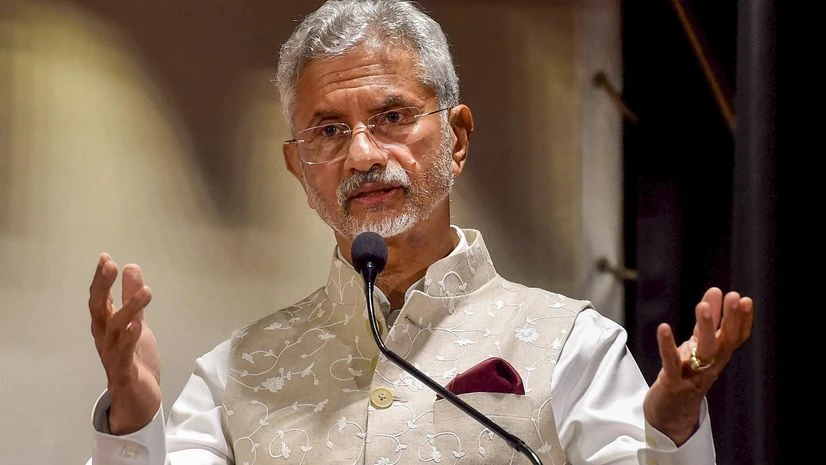)
Kolkata: External Affairs Minister S. Jaishankar speaks during the release of the Bangla translation of his book ‘Why Bharat Matters’, in Kolkata, Tuesday, May 14, 2024. (Photo:PTI)
External Affairs Minister S Jaishankar on Friday said India was working to establish the India-Middle East- Europe Economic Corridor (IMEC), and the International North-South Transport Corridor (INSTC), passing through the Chabahar port, asserting that there is a need to re-engineer the global logistics map.
Speaking at the CII Annual Business Summit, Jaishankar said every member nation was determined to see the IMEC through, despite the challenging situation in West Asia.
“We are dead serious about it (IMEC) and have been talking to each other. Not everything has to fall in place for something to start. Wherever we can get moving, we will get moving,” the minister said.
The IMEC initiative, a sea-land connectivity project linking India with West Asia and Europe is a move by New Delhi to counter China’s controversial Belt and Road Initiative.
It will provide a reliable and cost-effective cross-border ship-to-rail transit network to supplement the existing maritime and road transport routes and enable goods and services to transit to and from, and between India, the UAE, Saudi Arabia, Jordan, Israel, and Europe.
“One takes us to the Baltic Sea, the other to the Atlantic Ocean. To the east, the resumption of the India-Myanmar-Thailand trilateral Highway will provide us access to the Pacific Ocean. We are even examining the viability of polar routes, initially with the Chennai-Vladivostok corridor,” Jaishankar said.
In a clear message to policy watchers, the minister stressed that Indian businesses should tap more into global resources.
“For long, we have looked at Russia from a political or security perspective. As that country turns eastwards, fresh economic opportunities are presenting themselves. The spike in our trade and new areas of cooperation should not be regarded as a temporary phenomenon,” he said.
Jaishankar urged the CII to note that collateral consequences of hard currency shortages and uncertain logistics is driving countries to relook at the working of globalisation, all of which have an impact on manufacturing.
“This includes exploring new partners, creating shorter supply chains, building inventors, and devising new payment arrangements,” he said.
‘Perfect storm’
Arguing that the world is facing a ‘three F’ crisis of fuel, food, and fertilisers even as new tensions in Asia have seen agreements getting dishonoured and the rule of law being disregarded, Jaishankar said the world is facing a perfect storm.
“’For India, the task is to mitigate its impact on itself and continue to stabilise the world to the extent possible. It is this judicious combination of Bharat first and Vasudhaiva Kutumbakam that defines our image as Vishwabandhu,” the minister elaborated.
The world has moved from the narrative of harmonious globalisation, peaceful rise, and win-win situations 15 years ago, as the prospect of prolonged conflicts has continued to increase, he said.
Jaishankar added that while export promotion efforts would continue, he hinted that India’s practice of providing credit lines and grants to other nations for familiarising them with Indian products and capabilities will deepen.
First Published: May 18 2024 | 12:16 AM IST